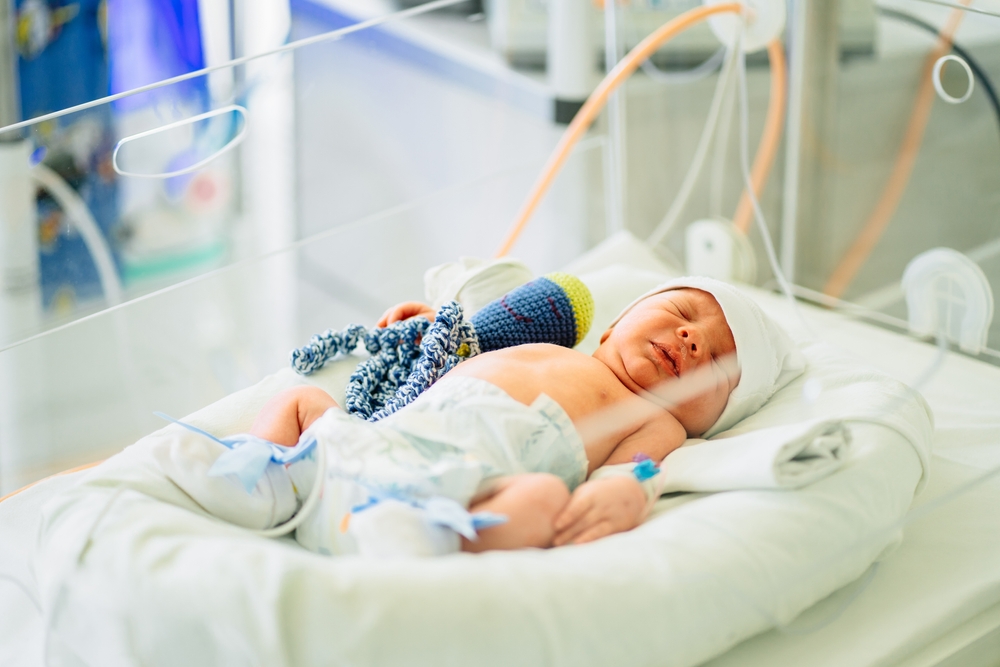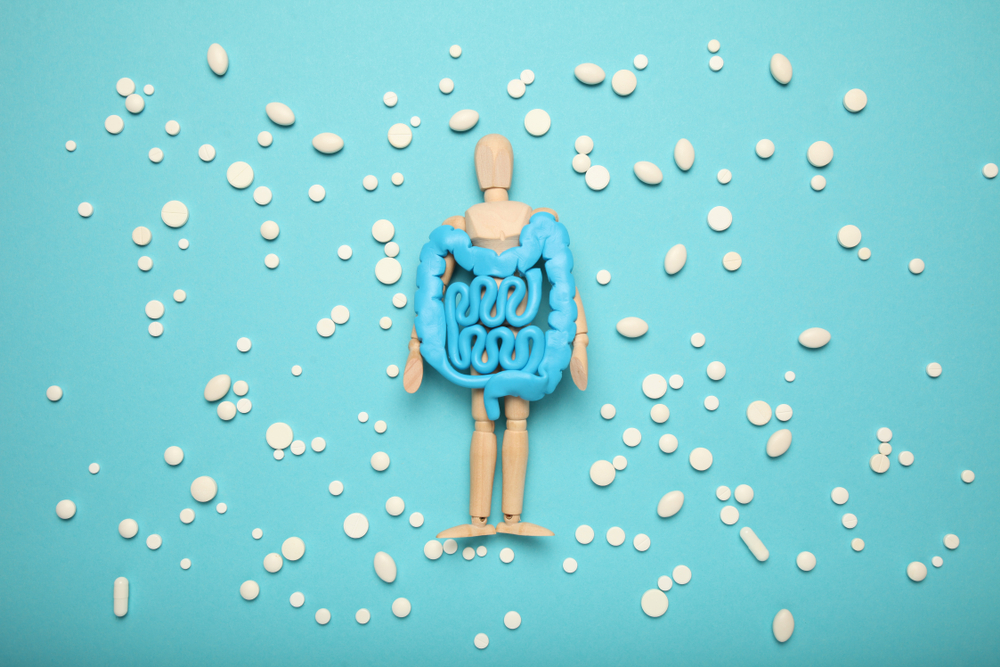Emmy van Daele (Microbiology) studied how the total number of microorganisms in our gut, the so-called gut microbiome, is established in babies and what negative effects may occur in their infant stages. She obtained her PhD at the end of May.
Our intestinal bacteria are as unique as a fingerprint. Van Daele: ‘I was interested in knowing how babies’ microbiome is formed and what the effect is of antibiotics, which can wipe out most of the intestinal bacteria in one fell swoop, including the beneficial bacteria. My research shows that children who are administered antibiotics in their first two years are more frequently affected by intestinal infections, coeliac and gluten intolerance.’
That is a problem because many infants around the world, including in the Netherlands, are given antibiotics at an early age, says Van Daele. ‘Globally, an average of twenty per cent of the new-born children receive antibiotics in their first week. In some regions, almost 100 per cent of the infants has received antibiotics before they reach the age of six months.’
Weighing risks
‘In one of the chapters of my dissertation, I describe how 150 out of the 450 babies born in a hospital in the Netherlands were given antibiotics within a week after birth because doctors suspected sepsis’, Van Daele clarifies. ‘However, only three babies’ blood work showed sepsis, which justified the need for antibiotics. Gynaecologists want to avoid risks, but Antibiotics have a sustained effect on the immune system and allergies.’
Van Daela has seen changes since the start of her research, but these are slow because hospitals are bound by protocols. ‘On the upside, these protocols enabled me to do this research as it would have been unethical to administer antibiotics to healthy babies in the name of science, but since they were administered for medical reasons, I was able to investigate how the different types of antibiotics impacted the children.’
Maternal microorganisms
In the course of her research, Van Daele discovered that formula and c-sections can also negatively impact babies’ gut microbiome. ‘Although these may present obvious risks, they are seldomly mitigated in practice. When I was born, some 30 years ago, bottle-feeding was promoted. In Brazil, over half of the babies are born through a c-section, mostly for practical reasons. I was astounded when I learned this. A vaginal delivery and breastfeeding a newborn ensure that the infant receives maternal antibodies as well as microorganisms. The risks I describe are real in many parts of the world. This confirms that undue messing about with nature can eventually impact our health.’

 ‘Antibiotics have a sustained effect on the immune system and allergies.’ Photo Shutterstock
‘Antibiotics have a sustained effect on the immune system and allergies.’ Photo Shutterstock 

